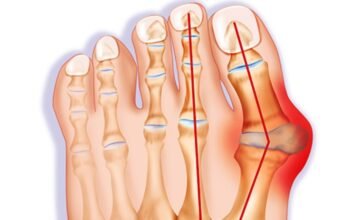High blood sugar, or hyperglycemia, is a serious health condition that affects millions of people worldwide. Understanding its symptoms and potential complications is crucial for early detection and effective management. This guide will help you recognize the signs of high blood sugar and learn how to protect your health.
Early Symptoms of High Blood Sugar
The first signs of high blood sugar often develop gradually and can be easily overlooked. Some of the most common early symptoms include:
- Increased Thirst and Frequent Urination: When blood sugar levels are elevated, your body attempts to flush out excess glucose through urine. This leads to more frequent bathroom trips and an intense feeling of thirst.
- Fatigue and Weakness: Your body struggles to effectively use glucose for energy, resulting in persistent tiredness and a lack of motivation.
- Blurred Vision: High blood sugar can cause the lens of your eye to swell, leading to temporary vision changes and difficulty focusing.
- Unexplained Weight Loss: Despite eating normally, you might experience sudden weight loss as your body cannot properly process glucose.
Long-Term Complications of Untreated High Blood Sugar
If left unmanaged, high blood sugar can lead to serious health complications that affect multiple body systems:
- Nerve Damage (Neuropathy): Prolonged high blood sugar can damage nerve endings, causing numbness, tingling, and pain, particularly in the extremities.
- Skin and Infection Problems: Elevated glucose levels can compromise your immune system, making you more susceptible to infections and slower wound healing.
- Cardiovascular Risks: Consistently high blood sugar can damage blood vessels, increasing the risk of heart disease and stroke.
- Kidney Damage: The kidneys work overtime to filter excess glucose, which can lead to long-term kidney dysfunction.
Understanding Diabetic Ketoacidosis (DKA)
Diabetic ketoacidosis is a severe and potentially life-threatening condition that occurs when your body produces high levels of blood acids called ketones. Warning signs include:
- Extreme thirst
- Frequent urination
- Nausea and vomiting
- Abdominal pain
- Fruity-smelling breath
- Confusion or altered mental state
DKA requires immediate medical attention and can be particularly dangerous for individuals with type 1 diabetes.
Effectively Managing High Blood Sugar
Managing high blood sugar involves a comprehensive approach:
- Regular Monitoring: Use a glucometer to track your blood sugar levels consistently
- Medication Management: Follow your healthcare provider’s prescribed insulin or oral medication regimen
- Balanced Nutrition: Adopt a diet low in refined sugars and rich in whole grains, lean proteins, and vegetables
- Regular Exercise: Physical activity helps improve insulin sensitivity and glucose metabolism
- Stress Management: Chronic stress can negatively impact blood sugar levels
When to Seek Medical Help
Consult a healthcare professional if you experience:
- Blood sugar levels consistently above 240 mg/dL
- Symptoms of DKA
- Persistent fatigue or unexplained weight changes
- Slow-healing wounds
Remember, early detection and proactive management are key to preventing serious health complications associated with high blood sugar. Regular check-ups, a healthy lifestyle, and working closely with healthcare professionals can help you maintain optimal blood sugar levels and overall health.






